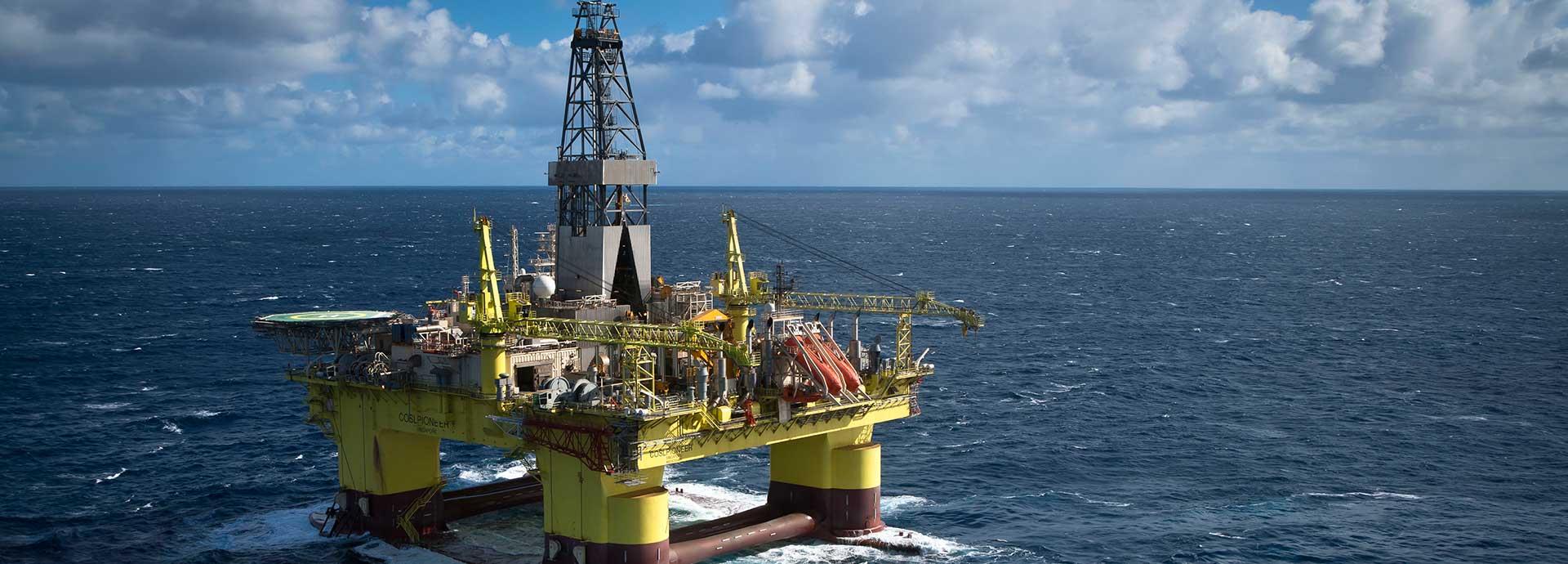

The offshore oil industry continues to emphasise operational and worker safety as a way to stay competitive.
Offshore drilling operators prioritise safe operations; and, in fact, the offshore drilling industry has some of the highest standards with regards to safety. High standards are particularly important given the challenges offshore workers face working in remote conditions. These issues, which include safety and efficiency, have been amplified by Covid-19. As the offshore drilling industry faces 2020’s unique concerns, safety and profitability will be inextricably linked.
“One of the most important things in oil and gas is to have good safety in order to be in business. [Safety] drives contracts with oil makers and is part of the core business,” says Pål Røhme, General Manager, OSV Sales, Wärtsilä. He notes that in this industry, safety includes “personnel safety, offshore assets, and environmental aspects.”
Safety first, for both vessels and personnel
With Covid-19 top of mind across all industries at the moment, Joel Thigpen, Wärtsilä’s General Manager for Offshore Drilling, notes the unique challenges that offshore assets face with regard to illness. “The concern with offshore assets – and it doesn’t matter what type of asset it is – is that people are in such confined spaces for such a long period of time,” Thigpen says. “It appears with Covid-19, people living in close proximity in confined spaces are at particular risk of spreading it to one another, so the idea is that it’s best to keep people apart.”
This may not be possible in vessels where space is at a premium. Ultimately, safeguarding offshore operators’ safety and improving operators’ profitability may require transferring offshore activities onshore, shifting headcounts currently on ships to land.
Thigpen posits that facing the concerns posed by Covid-19 could make remote operations more attractive. “People have already been looking at remote operations, but something like [Covid-19] could accelerate the desire to move toward remote operation capabilities,” Thigpen says. Increasing remote operations could involve things like unmanned engine rooms that can go a full year without needing human intervention onboard, since they are monitored by operators on shore.
Keeping employees safe and healthy is also critical to keeping vessels operational. “A small incident can lead to a meltdown and a complete leak that can put a rig out of service for a few days, at a cost of USD 300-400k per day, which is obviously a huge economic cost,” notes Ulrik Friis, Senior Business Innovation Manager at Wärtsilä.
Moving more tasks to onshore or remote may benefit operators’ bottom lines as well, according to Samuli Kyttälä, Senior Business Innovation Manager, Wärtsilä. “In addition to lower cost (less offshore hours, logistics, etc.), moving more tasks onshore or to remote operation provides safer and more environmental-friendly production,” Kyttälä says.
Pandemic-tested solutions
Wärtsilä’s ability to keep projects and essential parts moving is key to maintaining both its own and its customers’ business continuity in the face of myriad challenges, including those imposed by the novel coronavirus. By working with local technicians through virtual connections, Wärtsilä is able to keep delivering vital products and services despite travel limitations.
For companies dealing with Covid-19’s impact, the value of Wärtsilä’s offerings and services is already evident. At VARD shipyard in Tulcea, Romania, collaboration between Wärtsilä and the yard was key to continuing the installation of several propulsion units on a new offshore support vessel through video communication.
Solutions to address safety concerns
Jeroen van Keep, General Manager, Business Development, Wärtsilä, says that thinking of safety as being combined with the environment is key to overall vessel performance. Connecting these two issues makes it essential to seek solutions that improve vessels’ awareness of – and ability to respond to – their surroundings. SceneScan, the world’s first “target-less” DP laser sensor, fulfils that goal. As this technology does not require a reflector target to be deployed, it increases both safety and operational uptime.
In addition to hardware, Wärtsilä also offers digital solutions that improve offshore drilling rigs’ safety. The Expert Insight predictive maintenance solution, which allows Wärtsilä Expertise Centres to proactively deliver customer support and ensure long-term accurate insight for predictive maintenance strategies, is a good example. “You have a lot of opportunity to use Expert Insight as the next level within condition monitoring for engines,” says Friis.
Thigpen argues that Wärtsilä’s integrated portfolio provides the best way to attend to safety alongside other operational considerations. “The more pieces that you can integrate together, the better and more efficient the system can be. With our offering as a whole, since we can offer the entire power and marine system on a rig or supply vessel, that puts us in a good place to optimise the vessel itself, improve efficiency, and potentially get to that point where we can remotely operate or do autonomous operations.”
As the offshore drilling industry plans its future in a rapidly evolving environment, running safe, efficient, and competitive operations will be imperative for operators’ survival.


